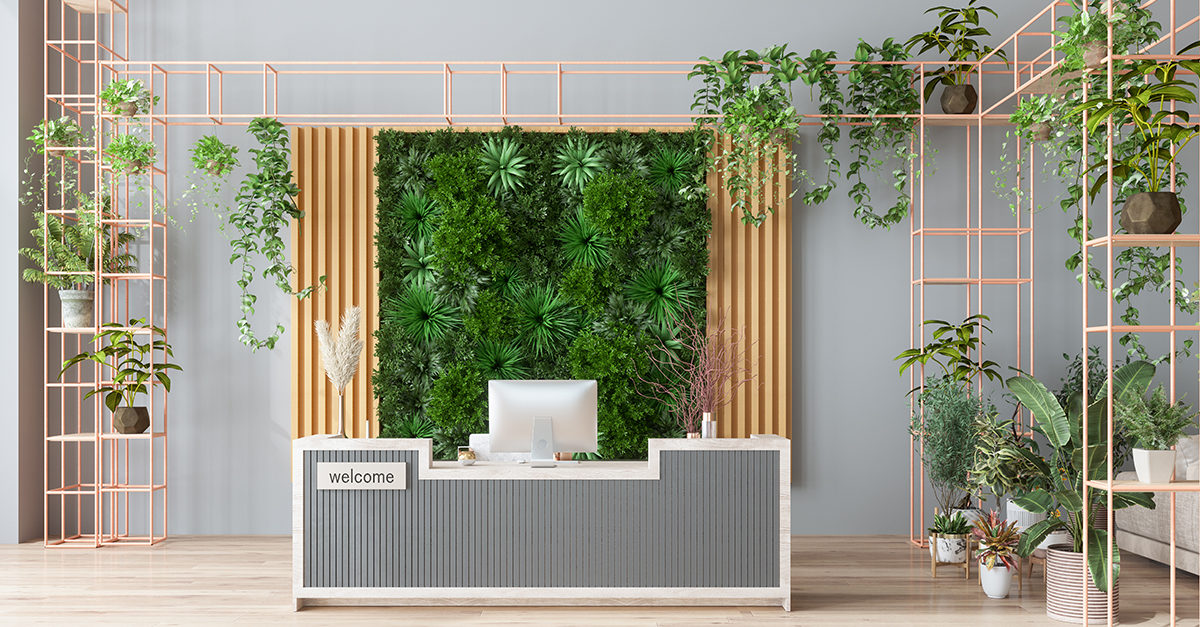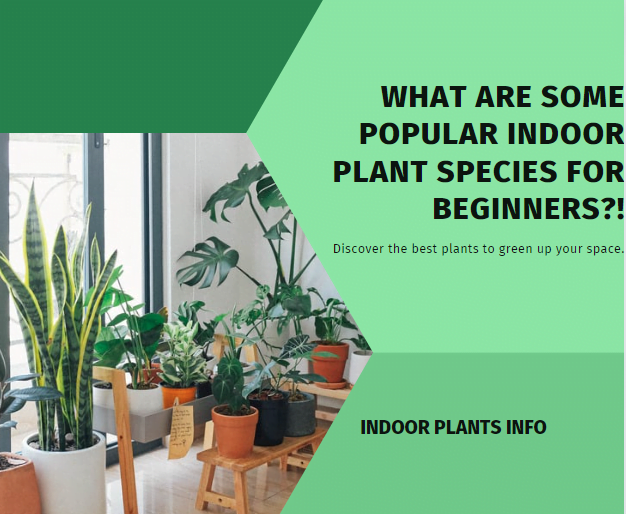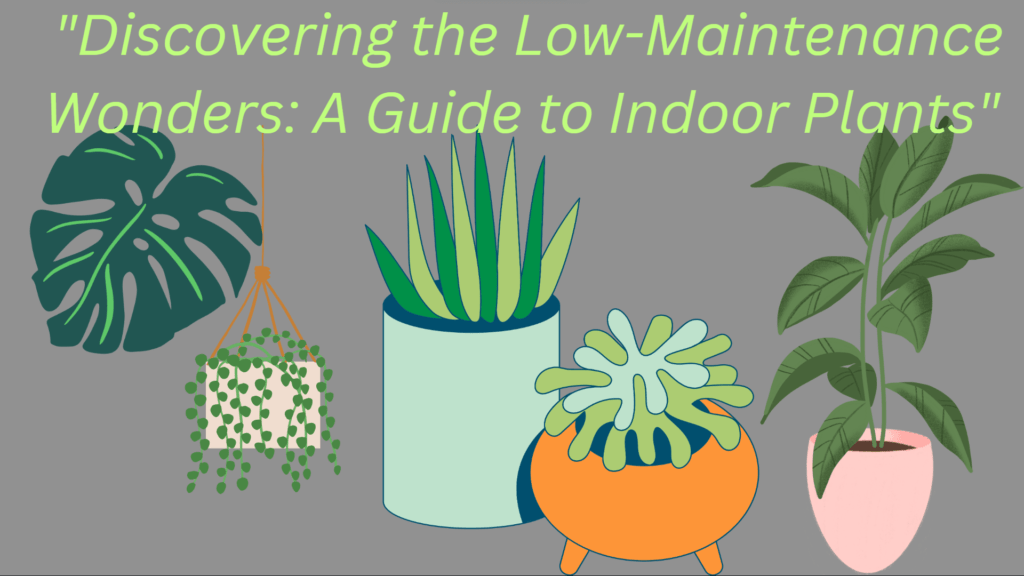Indoor plants enhance guest experience and improve air quality in hospitality settings. They also create a welcoming and aesthetically pleasing atmosphere.
In recent years, indoor plants have become more than just decorative elements in the hospitality industry. With a growing body of research supporting their myriad benefits, hotels, restaurants, and other hospitality venues are increasingly embracing greenery to enhance the guest experience. Drawing from personal experience and research, this blog will delve into the multifaceted advantages of indoor plants in the hospitality industry and provide actionable tips for integrating them into your space.
Aesthetic Appeal
Indoor plants offer numerous benefits. One of the key advantages is their aesthetic appeal. They enhance the visual beauty of any space, creating a welcoming environment for guests.
Visual Enhancement
Plants add vibrant colors and unique textures. They can turn a dull space into a lively one. Greenery makes any room look more attractive and pleasant.
Indoor plants can be used in:
- Lobby areas
- Guest rooms
- Restaurants
- Conference rooms
Creating Inviting Spaces
Plants help in creating inviting spaces. They make guests feel more comfortable and relaxed. A well-placed plant can transform an ordinary room into an inviting oasis.
Consider placing plants in:
- Reception desks
- Lounges
- Balconies
- Patios
Below is a table showing common plants and their aesthetic benefits: PlantAesthetic BenefitFiddle Leaf FigLarge, lush leavesSucculentsUnique shapes and sizesSnake PlantVertical, structured look
Air Quality Improvement
Indoor plants play a vital role in enhancing air quality within the hospitality industry. They act as natural air purifiers, providing a healthier environment for guests and staff alike. Plants can remove toxins, increase oxygen levels, and create a more pleasant atmosphere. Let’s explore how indoor plants improve air quality through two key aspects: reducing pollutants and increasing oxygen levels.
Reducing Pollutants
Indoor plants are effective at reducing pollutants in the air. Many common indoor plants, such as the spider plant and peace lily, can absorb harmful substances.
Some of the pollutants that plants help reduce include:
- Formaldehyde
- Benzene
- Trichloroethylene
- Xylene
These chemicals are found in everyday items like furniture, cleaning products, and paints. By absorbing these toxins, plants help create a cleaner and safer indoor environment.
Increasing Oxygen Levels
Plants also increase oxygen levels, enhancing the overall air quality. During photosynthesis, plants take in carbon dioxide and release oxygen.
This process benefits guests and staff, providing fresher air to breathe. Some of the best plants for boosting oxygen levels include:
- Areca Palm
- Snake Plant
- Money Plant
These plants are easy to maintain and thrive in indoor settings. Placing them strategically around the hospitality venue ensures a continuous supply of fresh oxygen.
Increased oxygen levels can improve mental clarity, reduce fatigue, and enhance overall well-being.
| Plant | Benefit |
|---|---|
| Spider Plant | Reduces formaldehyde and xylene |
| Peace Lily | Absorbs benzene and trichloroethylene |
| Areca Palm | Increases oxygen levels |
| Snake Plant | Boosts oxygen at night |
Stress Reduction
Indoor plants offer significant stress reduction benefits in the hospitality industry. They create a serene and welcoming environment for guests. This can enhance their overall experience and satisfaction.
Calming Effect
Indoor plants have a natural calming effect on people. Seeing greenery can reduce stress and anxiety levels. This is crucial in hospitality settings where guests seek relaxation and comfort.
Plants like lavender and aloe vera are known for their calming properties. They not only beautify the space but also create a peaceful ambiance. This makes guests feel more at ease and happy.
Promoting Relaxation
Indoor plants play a vital role in promoting relaxation. They help in purifying the air and improving oxygen levels. This leads to a healthier and more relaxing environment.
Plants such as peace lilies and snake plants are excellent for this purpose. They can significantly enhance the indoor air quality. Better air quality means guests can breathe easier and feel more relaxed.
Furthermore, the presence of plants can create a sense of connection with nature. This is especially important in urban hotel settings. It helps guests feel more grounded and at peace.
| Plant | Benefit |
|---|---|
| Lavender | Reduces stress and promotes calmness |
| Aloe Vera | Purifies air and has healing properties |
| Peace Lily | Improves air quality and reduces mold spores |
| Snake Plant | Releases oxygen at night and filters toxins |

Credit: cmmonline.com
Noise Reduction
Indoor plants offer many benefits in the hospitality industry. One key advantage is noise reduction. Plants can absorb, deflect, and refract sound. This creates a quieter and more pleasant environment for guests.
Absorbing Sound
Plants have unique structures that absorb sound waves. Their leaves, stems, and branches can trap and reduce noise. This makes indoor plants excellent natural sound absorbers. By placing plants in strategic locations, hotels can significantly lower noise levels.
Creating Quiet Zones
Plants can be used to create quiet zones within a hotel. These areas can be designed for relaxation or focused work. Guests appreciate these peaceful spots, especially in busy environments. Using plants to create these zones enhances the overall guest experience.
| Plant Type | Noise Reduction Capability |
|---|---|
| Ficus | High |
| Areca Palm | Medium |
| Rubber Plant | High |
| Peace Lily | Medium |
- Ficus plants reduce high-frequency noises.
- Areca Palms help in medium noise reduction.
- Rubber Plants absorb sound effectively.
- Peace Lilies are good for moderate noise control.
Incorporating these plants into hotel design can make a significant difference. Guests will enjoy a quieter, more serene atmosphere.
Sustainability
Indoor plants significantly contribute to sustainability in the hospitality industry. They enhance air quality, reduce energy consumption, and promote eco-friendly practices. Here’s how indoor plants aid in creating a sustainable environment within hotels, resorts, and other hospitality establishments.
Eco-friendly Practices
Indoor plants play a vital role in eco-friendly practices. They absorb carbon dioxide and release oxygen, improving air quality. This natural process reduces the need for artificial air purifiers.
Many hospitality businesses use indoor plants to minimize their carbon footprint. Green walls and vertical gardens are popular choices. They offer aesthetic appeal and environmental benefits.
- Absorb harmful pollutants
- Reduce indoor temperatures
- Support biodiversity
Implementing these practices shows a commitment to sustainability. It attracts eco-conscious guests who value green initiatives.
Energy Efficiency
Indoor plants contribute to energy efficiency in multiple ways. They help regulate indoor temperatures, reducing the need for air conditioning.
Plants like the Fiddle Leaf Fig and Rubber Plant are excellent choices. They provide shade and cool the air through transpiration.
| Plant Type | Energy-Saving Benefit |
|---|---|
| Fiddle Leaf Fig | Provides shade |
| Rubber Plant | Cools air through transpiration |
These plants also reduce the need for artificial lighting. Their green foliage absorbs sunlight, creating a naturally bright environment.
Health Benefits
Indoor plants offer numerous health benefits for guests and staff in the hospitality industry. These natural elements can enhance the overall well-being of everyone in the space.
Boosting Immunity
Plants can boost the immune system. They release oxygen and help clean the air. Clean air means better respiratory health.
- Plants like Aloe Vera and Spider Plant filter toxins.
- They increase humidity levels, reducing dryness.
- Higher humidity can reduce skin and respiratory issues.
Guests will experience fewer allergies and breathe easier. Employees will also get sick less often, leading to better productivity.
Reducing Illness
Indoor plants can reduce illness in many ways. They decrease stress and improve mood.
People who feel good are less likely to get sick. Plants also offer a calming effect, lowering blood pressure.
- Plants like Lavender reduce stress levels.
- Peace Lilies can improve air quality.
- Plants increase overall happiness and well-being.
Healthy guests and staff create a better environment. They lead to fewer sick days and more satisfied visitors.
Guest Interaction
Indoor plants play a vital role in enhancing guest interaction in the hospitality industry. They create a welcoming atmosphere that encourages guests to engage with each other. This fosters a sense of community and belonging.
Encouraging Socialization
Indoor plants have the unique ability to draw people together. Guests often gather around beautifully arranged plant displays. This setting provides a perfect backdrop for conversations. Indoor plants can make guests feel more at ease. They act as natural icebreakers.
Social spaces like lobbies and lounges can benefit greatly from greenery. Plants soften the environment and make it more inviting. These spaces become hubs of activity and interaction.
Observation: Guests are more likely to engage in social activities when surrounded by nature. Studies show that greenery reduces stress and promotes a positive mood. Happy guests are more likely to interact and socialize.
Enhancing Guest Satisfaction
Guest satisfaction is crucial in the hospitality industry. Indoor plants contribute significantly to this. They improve the overall guest experience. A pleasant environment with greenery can lead to higher satisfaction levels.
Benefits of Indoor Plants:
- Improved air quality
- Enhanced aesthetic appeal
- Reduced noise levels
- Stress reduction
Aesthetic appeal: Beautifully arranged plants enhance the visual appeal of any space. Guests appreciate the attention to detail. This can lead to positive reviews and repeat visits.
Air quality: Plants purify the air and create a healthier environment. Guests feel more comfortable and at ease. This boosts their overall satisfaction.
Stress reduction: Greenery has a calming effect on people. Guests feel more relaxed and enjoy their stay more. This leads to better reviews and word-of-mouth recommendations.

Credit: unbeleafable.ph
Frequently Asked Questions
What Are The Benefits Of Having Plants Indoors?
Indoor plants improve air quality, reduce stress, and boost mood. They enhance decor and can increase productivity.
How Do Indoor Plants Help The Environment?
Indoor plants improve air quality by absorbing carbon dioxide and releasing oxygen. They also reduce indoor pollutants and increase humidity.
Can You Have Live Plants In A Restaurant?
Yes, you can have live plants in a restaurant. They improve air quality and create a welcoming atmosphere. Ensure they are well-maintained and pest-free.
Why Are Some Plants Indoor?
Indoor plants improve air quality, enhance decor, and thrive in controlled environments. They require less sunlight and can reduce stress.
Conclusion
Indoor plants offer numerous benefits for the hospitality industry. They enhance aesthetics, improve air quality, and boost guest satisfaction. Incorporating greenery can lead to increased customer loyalty and positive reviews. Therefore, investing in indoor plants is a smart move for any hospitality business.
Embrace nature to create memorable experiences for your guests.



